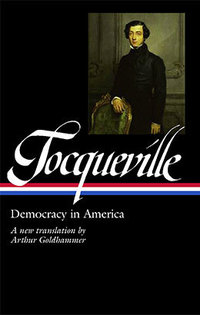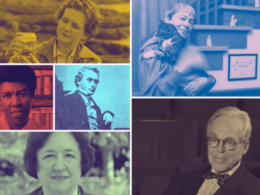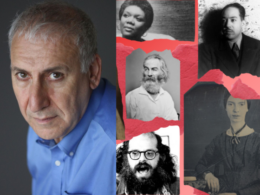
With the vicissitudes of American democracy currently on display in each day’s headlines, could there be a more opportune time to explore the most famous book ever written on the subject? Accordingly, the National Endowment for the Humanities has just announced that in July 2016 it will sponsor a two–week course at the University of Virginia, “Exploring American Democracy, with Alexis de Tocqueville as Guide.”
Of special interest to Library of America readers is that the two Tocqueville scholars who are convening the seminar for the NEH are Arthur Goldhammer and Olivier Zunz—translator and editor, respectively, of the LOA edition of Democracy in America, published in 2004.
The course runs from July 18–29, 2016 and is open to college and university teachers and to two full-time graduate students. Potential applicants can find complete details and application instructions at the seminar website.
In a special guest blog post below, Goldhammer describes how his collaboration with Zunz on the Library of America edition of Tocqueville was only the beginning of a long-running intellectual partnership, the most recent fruit of which is next summer’s NEH seminar.
In 2016 Olivier Zunz and I will jointly teach an NEH Summer Seminar on Alexis de Tocqueville’s Democracy in America at the University of Virginia. The National Endowment for the Humanities sponsors these seminars for college teachers and graduate students to foster teaching of the humanities in American universities.
Olivier and I began our collaborative work together more than a decade ago when we joined forces to produce the Library of America’s edition of Democracy in America. LOA had asked me to translate the work, and I in turn suggested that Olivier be taken on board as an editor and consultant on the volume. Olivier then carefully vetted my translations and produced a chronology of Tocqueville’s life to accompany the work.
From that first harmonious collaboration was born an intellectual friendship that has now produced two more volumes of Tocqueville’s work: a compendium of the letters and diaries and other writings of Tocqueville and his traveling companion Gustave de Beaumont and a forthcoming new translation of Tocqueville’s Recollections, both published by the University of Virginia Press.
In the interim I also translated Tocqueville’s other major work, The Ancien Régime and the Revolution. Thanks to Olivier, who was president of the Tocqueville Society, I joined the international community of Tocqueville scholars for a memorable colloquium on the writer’s work in his native Normandy, where we met and befriended the late Frank Turner, who was then head of the Beinecke Library at Yale, where some of Tocqueville’s papers are housed. Together with John Young at the Florence Gould Foundation, Frank generously supported the work on the Tocqueville-Beaumont volume. The Gould Foundation also supported the forthcoming translation of the Recollections.
Though we live nearly a thousand miles apart, Olivier and I have forged a close working relationship over more than a decade of collaboration on Tocqueville’s texts. When Olivier saw that the NEH was requesting proposals for summer seminars devoted to the theme of “the common good,” he thought that this would be an excellent opportunity for us to collaborate in the same place for once, rather than via the Internet. I immediately embraced the idea, not least because I saw an opportunity to contrast Tocqueville’s ideas about America with those of another French author I have translated, Thomas Piketty. For Tocqueville, America was defined by equality, but Piketty has argued more recently that growing inequality threatens the common good whose meaning the NEH wants its 2016 seminars to explore. And so a proposal was born and eventually approved by the NEH.
All of this began with the Library of America’s invitation to me to produce a new translation of Democracy in America. Thus the Library produces not only handsome books but durable and fruitful intellectual companionships.



